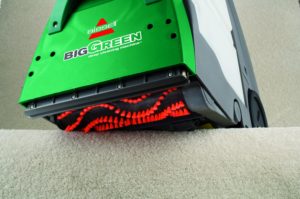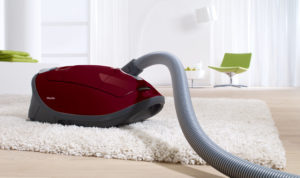
Whether you’re buying a carpet for your home or business, the odds are that you’re going to choose a synthetic fiber over a natural one. And if you choose a synthetic fiber, statistically, you’re probably going to buy either nylon or polyester. But while nylon is generally regarded as the king of synthetic fibers, there are plenty of reasons to choose polyester instead, including those related to the environment, your wallet, and what you’re specifically looking for from the carpet you choose. While we can’t decide for you, we can show you some of the main differences between the two fibers to help make the decision clearer.
Which fiber is more durable: nylon or polyester?
While aesthetics matter, most homeowners are ultimately going to tie their satisfaction with a carpet purchase to how long the carpet lasts in good condition. While few people expect 30 year carpets (although such carpets do exist, as evidenced by their warranty coverage), most would like at least a decade or more of resistance to wear and tear.
If you want a synthetic carpet fiber that lasts, most industry insiders will tell you to choose nylon, and for good reason. It’s regarded as the toughest synthetic carpet fiber on the market, although triexta has gained a loyal following in recent years. Nylon’s durability is largely due to its resiliency; at a molecular level, the fibers respond to compression by regaining their volume quickly.
In contrast, most retailers and manufacturers agree that polyester won’t give you the durability or resilience of nylon. In real world use between carpets of equal quality that see equal traffic, a polyester fiber carpet will start showing degradation sooner than a nylon-based carpet (although both will wear eventually regardless).
You’ll want to keep in mind that you can buy nylon and polyester carpets in several quality grades, and a high-end polyester carpet is almost always going to last longer than a budget nylon carpet. Whenever you compare carpets, you need to make sure the quality levels are the same.
Is polyester really more stain resistant than nylon for carpeting?
If nylon wins in resilience, polyester takes the title in stain resistance. Because polyester is hydrophobic, it repels liquid at a molecular level. This means a polyester carpet will naturally reject things your guests, kids, or daydreaming spouse spill on them, like red wine, orange juice, or coffee. Nylon, in contrast, is an absorbent fiber, and will happily welcome liquids, spills, and eventually stains if left to its own devices.
The good news is that modern residential carpets include stain protection. Nylon and polyester carpets alike have stain treatment to help reduce the odds of spills turning into stains. As a result, even though a stain-treated nylon fiber won’t have as much stain-resistance as a stain-treated polyester fiber, it will still have far more than it would have without such treatment.
Additionally, you can buy solution-dyed nylon, where the colors of the fiber are added to the fiber as the fiber is made instead of after. Solution dyeing results in much higher stain and fade resistance, whether in nylon or in any other synthetic fiber.
Which synthetic fiber is more ecologically friendly: nylon or polyester?
When it comes to minimizing resource consumption, PET polyester wins again, as polyester is frequently manufactured through recycled plastics like water bottles. That said, nylon, which historically was a very environmentally-unfriendly fiber, has become far less harmful to the environment through improvements in manufacturing and recycling processes.
A nylon carpet in a landfill will sit there for centuries; on the other hand, if it’s recycled, some of it can be turned into new nylon carpeting, reducing environmental impact and waste. However, you’re still not going to get the level of earth-friendliness you would from simply choosing a natural carpet fiber from the start like wool. Read your labels carefully to see how your carpet was made and what will happen to it when you no longer need it.
How do nylon and polyester compare in price and softness?
Aside from its stain resistance and ecological friendliness, polyester is also far cheaper to produce than nylon, resulting in lower purchase prices. However, when it comes to softness, there isn’t a difference between the fibers. What will make a difference is the selection of soft fibers such as those in soft carpets, whether those fibers are made of nylon, polyester, or any other synthetic fiber.
Are there recommended carpet cleaners and vacuums for nylon or polyester carpets?

While you can generally use any carpet cleaner or vacuum to clean nylon or polyester fiber carpets, we recommend using quality machines to maximize the resiliency of whatever carpet you buy. Frequent cleaning and vacuuming is also the best way to remove spills before they turn into stains and to remove residue before it leads to soiling. For a dedicated carpet cleaner that you’ll use for deep cleaning, we recommend the Bissell 86T3 Big Green. It compares favorably to most industrial cleaners under $1,000 and is a steal for its price.

When it comes to choosing a vacuum, we recommend buying machines that will work with every pile and style of carpet you might possibly get in the future. This doesn’t mean you need a crystal ball; it just means you need vacuums capable of cleaning bare floors and low-, medium-, and high-pile carpets with ease. Two examples of vacuums that fit these descriptions are the Miele Complete C3 Soft Carpet or the Miele Compact C2 Electro+. We’ve reviewed the Soft Carpet multiple times (e.g., here, here, and here) as well as the Electro+ (e.g., here and here), and highly recommend both as buy-it-for-life vacuums.
![]() You can buy the Bissell 85T3 Big Green carpet cleaner here on Amazon. You can buy the Miele Complete C3 Soft Carpet here or buy the Miele Compact C2 Electro+ here.
You can buy the Bissell 85T3 Big Green carpet cleaner here on Amazon. You can buy the Miele Complete C3 Soft Carpet here or buy the Miele Compact C2 Electro+ here.
![]() Canadians can buy the Miele Soft Carpet here, the Compact Electro+ here, and the Bissell Big Green here.
Canadians can buy the Miele Soft Carpet here, the Compact Electro+ here, and the Bissell Big Green here.
If you find our research on PMC helpful, you can follow our efforts to keep maniacally reviewing home cleaning tools by shopping through our links above. We promise to keep fighting the good fight against every horror children, animals, and grown, yet messy humans can inflict upon a clean home.

